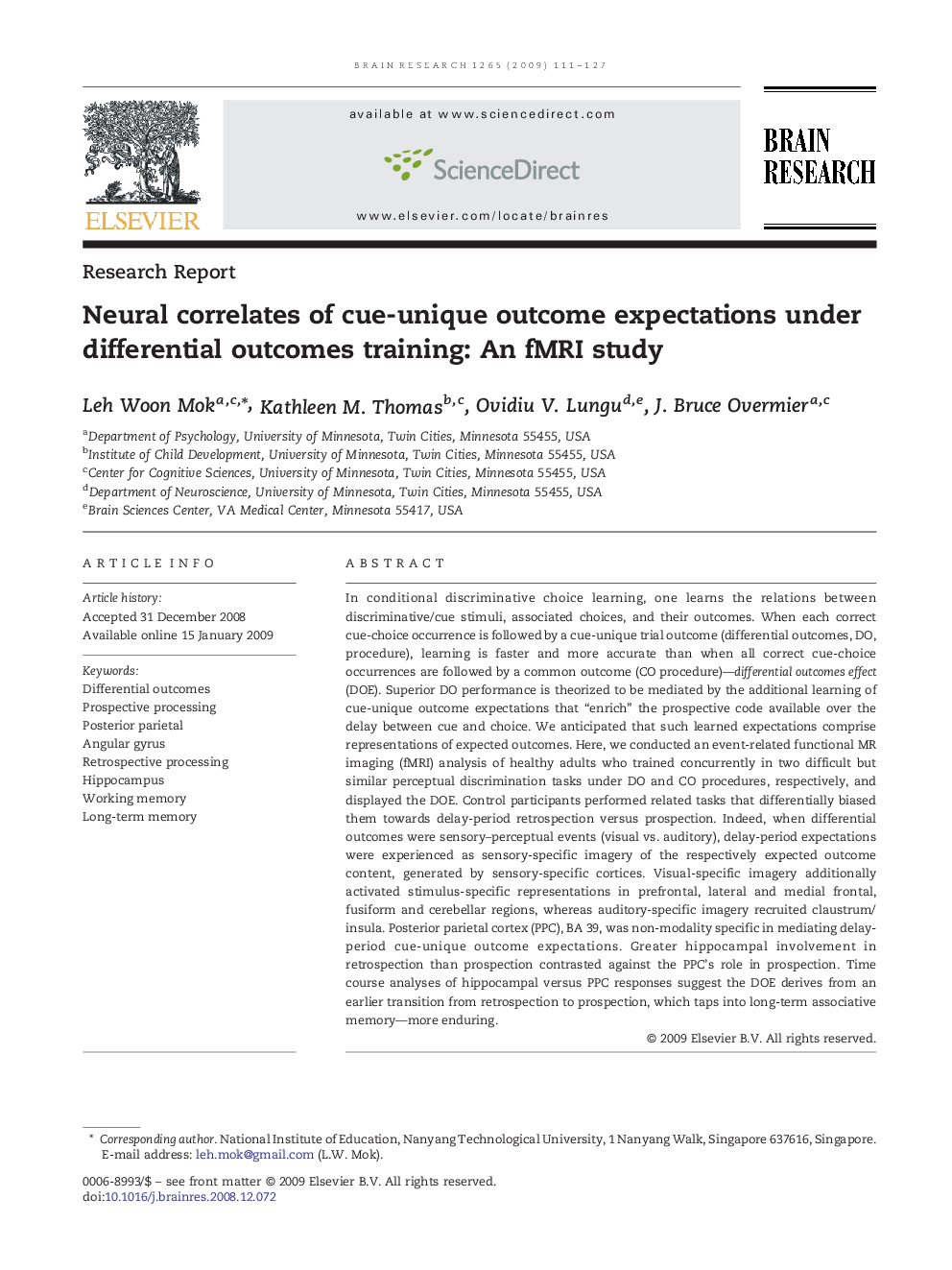| Article ID | Journal | Published Year | Pages | File Type |
|---|---|---|---|---|
| 4328428 | Brain Research | 2009 | 17 Pages |
Abstract
In conditional discriminative choice learning, one learns the relations between discriminative/cue stimuli, associated choices, and their outcomes. When each correct cue-choice occurrence is followed by a cue-unique trial outcome (differential outcomes, DO, procedure), learning is faster and more accurate than when all correct cue-choice occurrences are followed by a common outcome (CO procedure)-differential outcomes effect (DOE). Superior DO performance is theorized to be mediated by the additional learning of cue-unique outcome expectations that “enrich” the prospective code available over the delay between cue and choice. We anticipated that such learned expectations comprise representations of expected outcomes. Here, we conducted an event-related functional MR imaging (fMRI) analysis of healthy adults who trained concurrently in two difficult but similar perceptual discrimination tasks under DO and CO procedures, respectively, and displayed the DOE. Control participants performed related tasks that differentially biased them towards delay-period retrospection versus prospection. Indeed, when differential outcomes were sensory-perceptual events (visual vs. auditory), delay-period expectations were experienced as sensory-specific imagery of the respectively expected outcome content, generated by sensory-specific cortices. Visual-specific imagery additionally activated stimulus-specific representations in prefrontal, lateral and medial frontal, fusiform and cerebellar regions, whereas auditory-specific imagery recruited claustrum/insula. Posterior parietal cortex (PPC), BA 39, was non-modality specific in mediating delay-period cue-unique outcome expectations. Greater hippocampal involvement in retrospection than prospection contrasted against the PPC's role in prospection. Time course analyses of hippocampal versus PPC responses suggest the DOE derives from an earlier transition from retrospection to prospection, which taps into long-term associative memory-more enduring.
Keywords
Related Topics
Life Sciences
Neuroscience
Neuroscience (General)
Authors
Leh Woon Mok, Kathleen M. Thomas, Ovidiu V. Lungu, J. Bruce Overmier,
